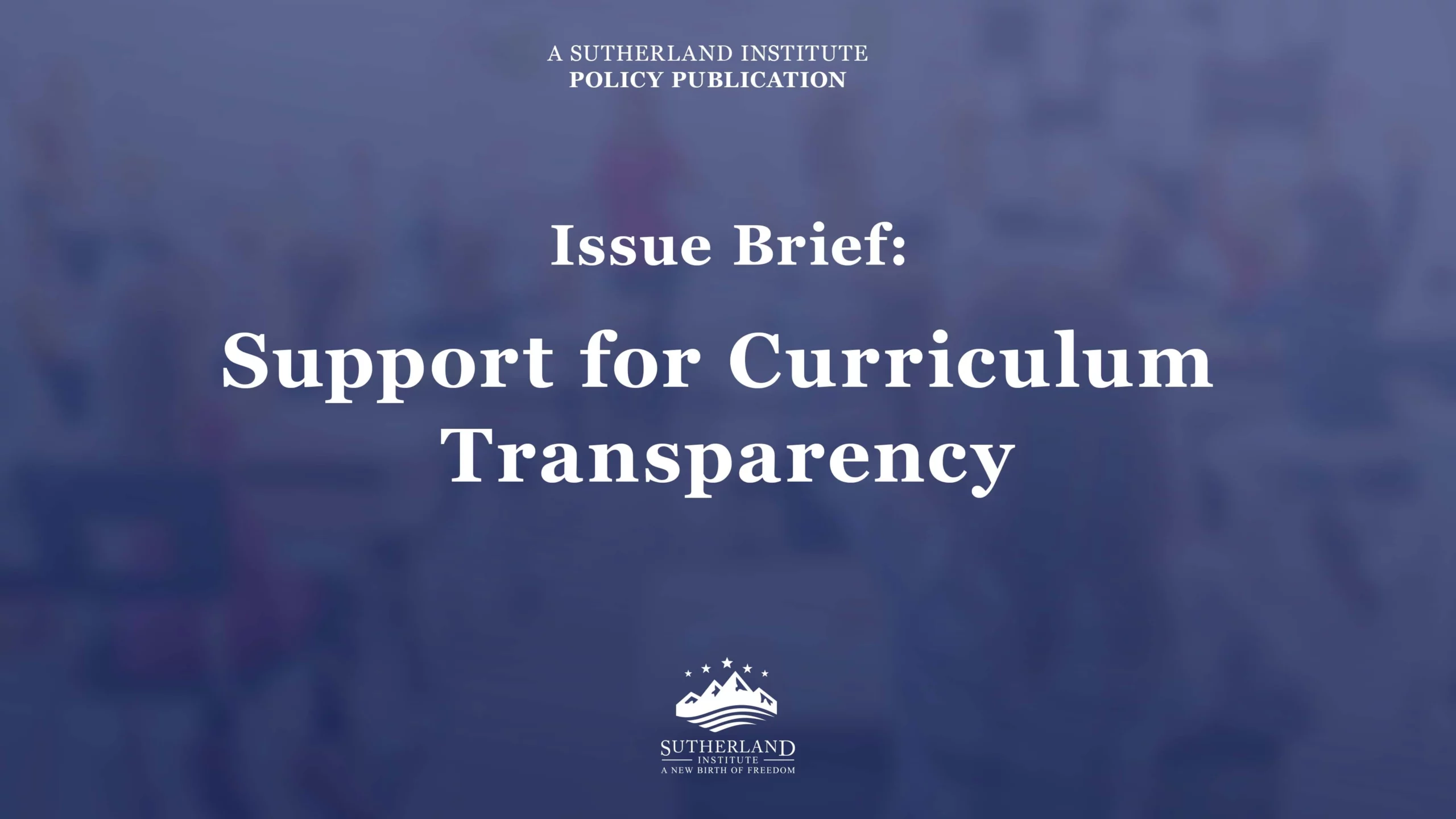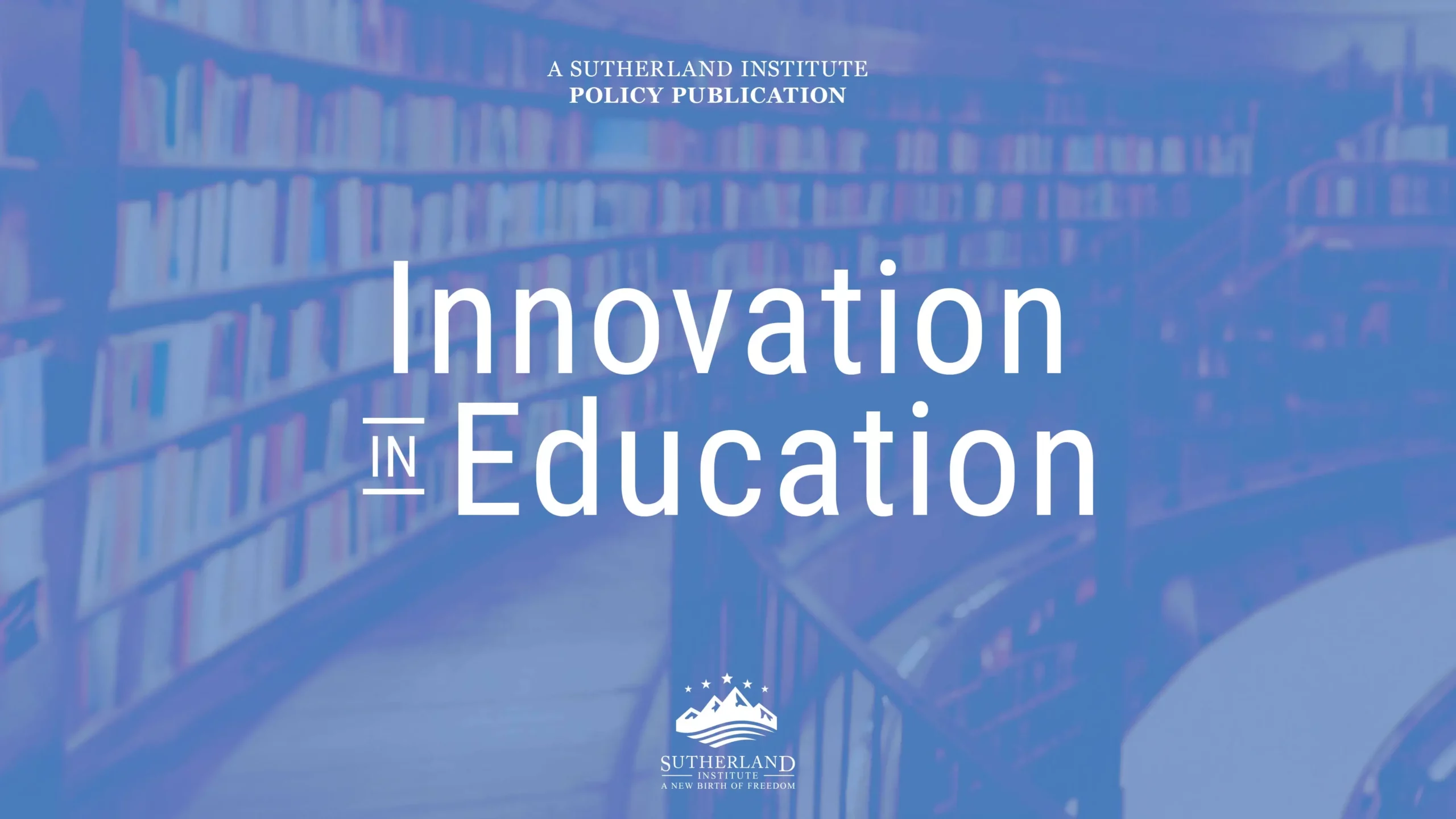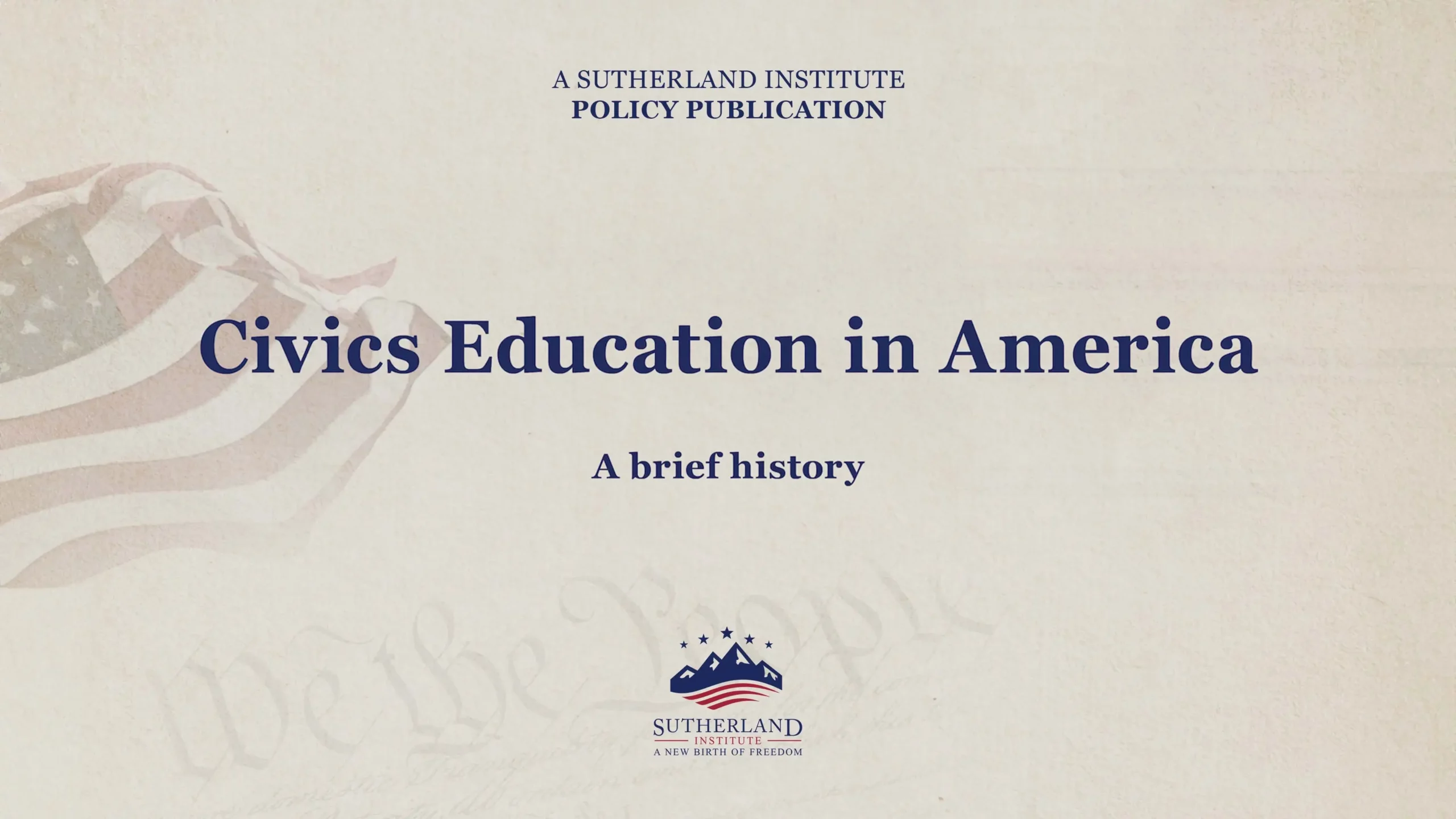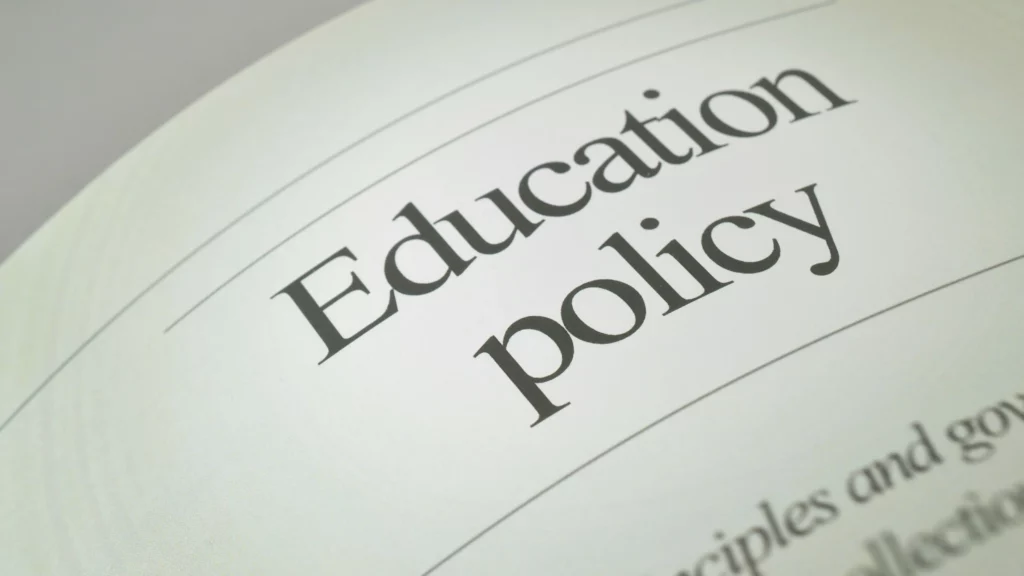Policy
Education
Human beings are magnificent. We were born with a God-given ability to learn and the capacity to grow. As Aristotle put it, “All men by nature desire to know.” Education is broader than any one school system. It’s a series of opportunities to learn, which should be delivered in ways that allow us to meet the unique needs of children. The growing diversity of our student population requires an equitable education for every child, which contemplates both productive citizenship and employment and which is delivered by the best teachers – whoever they are.
This vision for education requires humility and the pursuit of good ideas – wherever they come from. We can achieve this by empowering parents to create learning paths as unique as the student, rejecting approaches that undermine decision-making authority of those closest to the student, respecting taxpayers as owners of the public education system, and protecting the marketplace of options and the innovators who contribute to it. Education is necessary because each individual has the potential to accomplish great things. Education should reflect these truths, and we believe it can.
Education
Human beings are magnificent. We were born with a God-given ability to learn and the capacity to grow. As Aristotle put it, “All men by nature desire to know.” Education is broader than any one school system. It’s a series of opportunities to learn, which should be delivered in ways that allow us to meet the unique needs of children. The growing diversity of our student population requires an equitable education for every child, which contemplates both productive citizenship and employment and which is delivered by the best teachers – whoever they are.
This vision for education requires humility and the pursuit of good ideas – wherever they come from. We can achieve this by empowering parents to create learning paths as unique as the student, rejecting approaches that undermine decision-making authority of those closest to the student, respecting taxpayers as owners of the public education system, and protecting the marketplace of options and the innovators who contribute to it. Education is necessary because each individual has the potential to accomplish great things. Education should reflect these truths, and we believe it can.
Conversations
The need to end address discrimination
Adapting school districts to the new era of education
Will school districts overflow with open enrollment?
Why parents choose different schools for their kids
The political reality of trying to abolish the Department of Education
Striking the balance in educational involvement #utpol #studentsuccess
The need to end address discrimination
Adapting school districts to the new era of education
Insights & Takeaways
National politics may shake up the federal approach to education. Utah should stay the course
Utahns simultaneously support education choice and better public schools.
How Utah can prohibit address discrimination in open enrollment policy
Public policy ought to ensure a student’s residential address is not a reason to deny an application to transfer to another school.
Utah Fits All: An unknown – yet important – education scholarship
While the majority of parents are unaware of the scholarship program, its benefits could provide a much-needed leg up for families.
Could Trump’s second term forever change federal education policy?
President-elect proposes using federal funding preferences for states that make changes like adopting complete curriculum transparency and universal school choice, among other reforms.
Despite support for education savings accounts, awareness of Utah Fits All remains low
Among other findings, survey indicates that education choice is officially no longer the lightning rod issue that it once was in Utah.
Utah’s open enrollment policy is strong – implementation less so
When districts do not faithfully implement Utah’s open enrollment law, they may be effectively denying parents practical access to better public schools for their child.
New data highlights voter priorities in education
There is a stark difference in opinion about the quality of public education between parents and teachers.
Utah’s 2025 education agenda: What to expect for the parent-teacher partnership
What does the research say about Utah education and how are Utah leaders improving parent access to curriculum?
How early traditions made school open enrollment necessary
Property tax for funding schools and redlining are among the reasons behind current neighborhood-based school assignments.
New report and survey data highlight areas for open enrollment reform
Utah voters strongly support making information about open enrollment more transparent to parents.
Original public meaning, not subjective intent, should guide Utah judge’s evaluation of scholarship law
The court can make a great contribution by getting the legal issues right.
What does the new PALM pilot program bill do for teachers?
HB 325 would create a program in which teachers in selected areas could receive incentives for making their learning materials more easily accessible to parents.



















